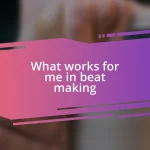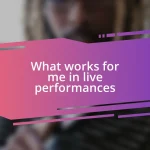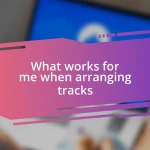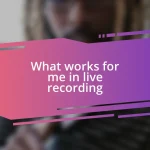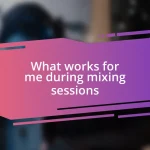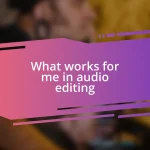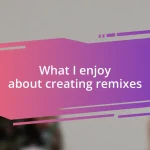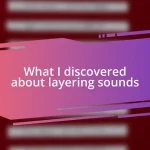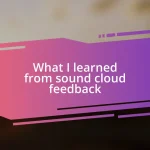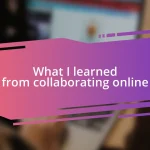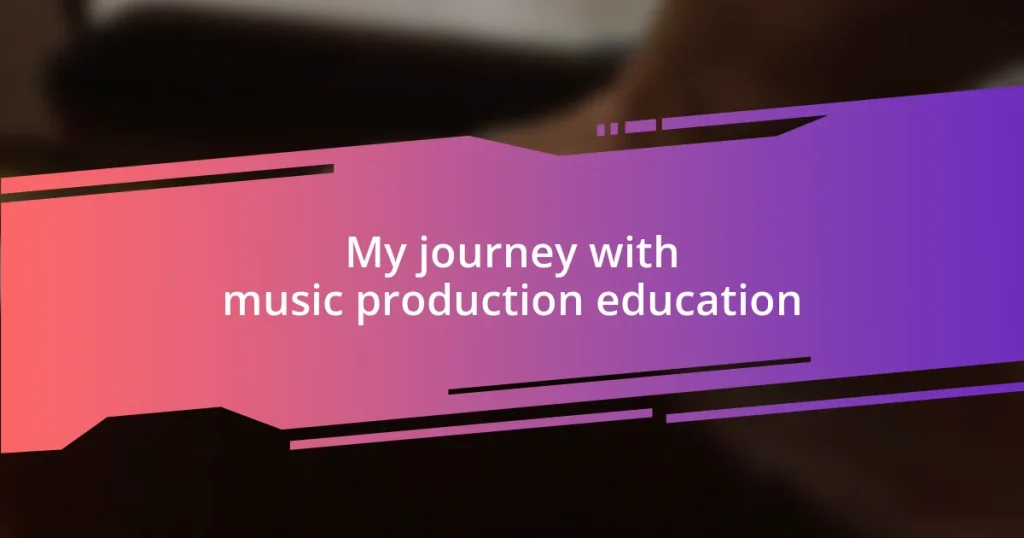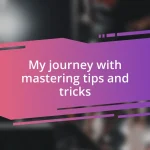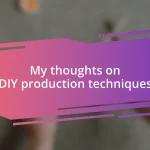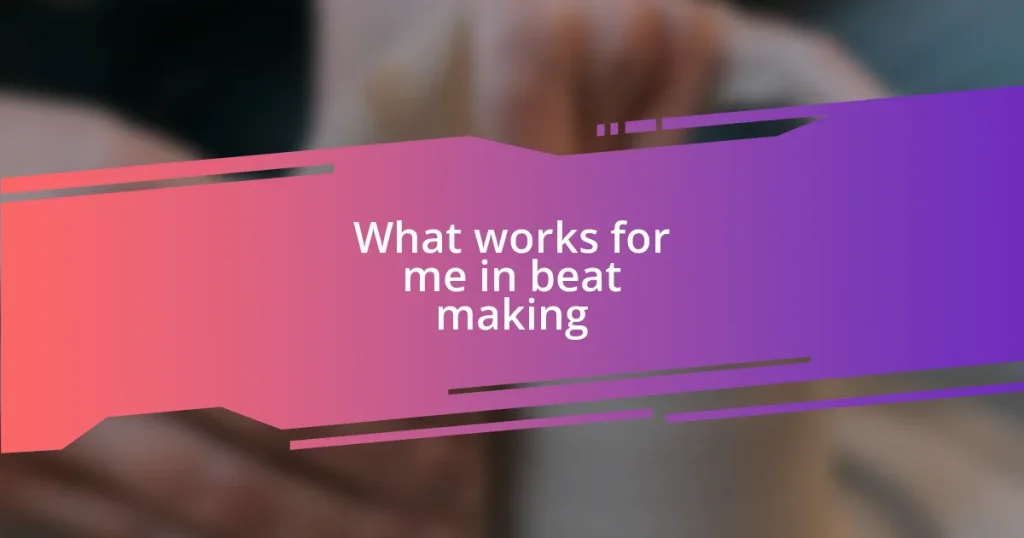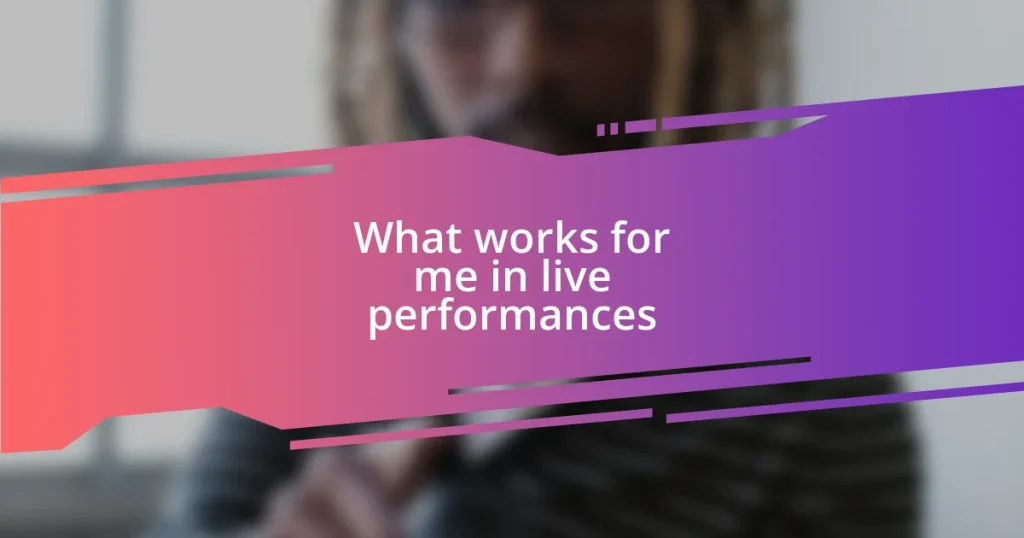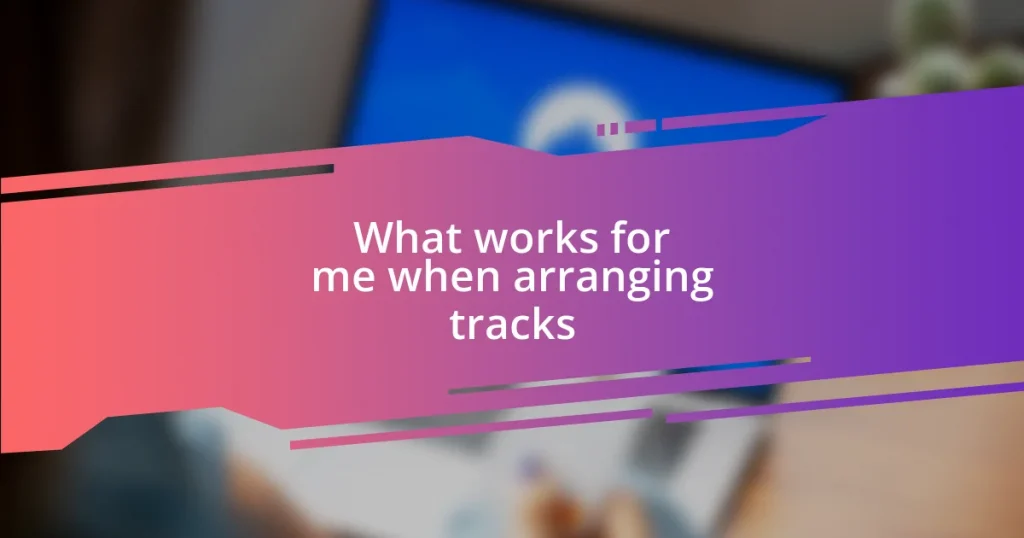Key takeaways:
- Choosing a music school requires evaluating both the curriculum and the school’s culture, emphasizing the importance of a supportive environment and inspiring instructors.
- Essential skills for music production include sound design, mixing, arrangement, and collaboration, all contributing to artistic expression and technical growth.
- Networking and building a diverse portfolio are crucial for success in the music industry, fostering relationships and showcasing artistic identity to attract collaborators and opportunities.
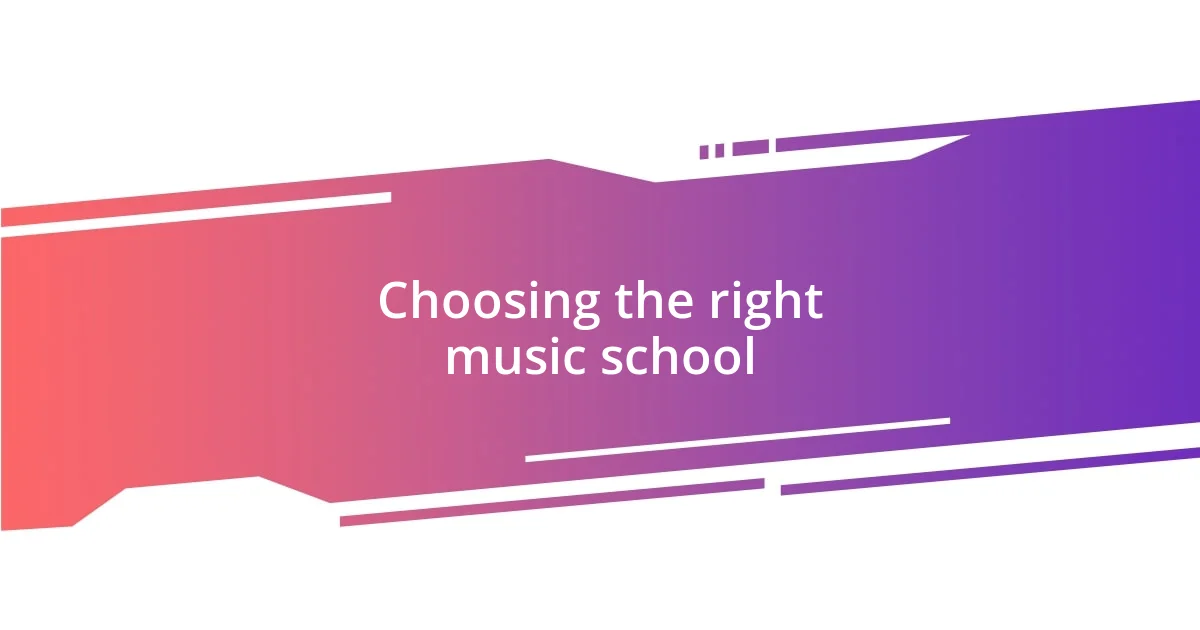
Choosing the right music school
When I was on the hunt for the right music school, I found myself grappling with a myriad of options. It was crucial for me to evaluate not just the curriculum but also the school’s overall vibe. You might ask yourself, “Does this place feel like home?” Because, in my experience, a supportive environment can be just as vital as the lessons themselves.
I remember visiting one school that seemed perfect on paper, but as soon as I stepped inside, the atmosphere felt stifling and competitive. It made me realize that the school’s culture impacts your learning experience significantly. Have you thought about how you thrive best—do you excel in a collaborative space or do you prefer a more independent approach?
Ultimately, I learned that connecting with instructors is vital when choosing a music school. I was fortunate to meet a mentor at one institution who not only shared knowledge but also ignited my passion for music production. It’s essential to consider, “Are the teachers not only experienced but also inspiring?” Because if you find that connection, it can truly shape your musical journey.
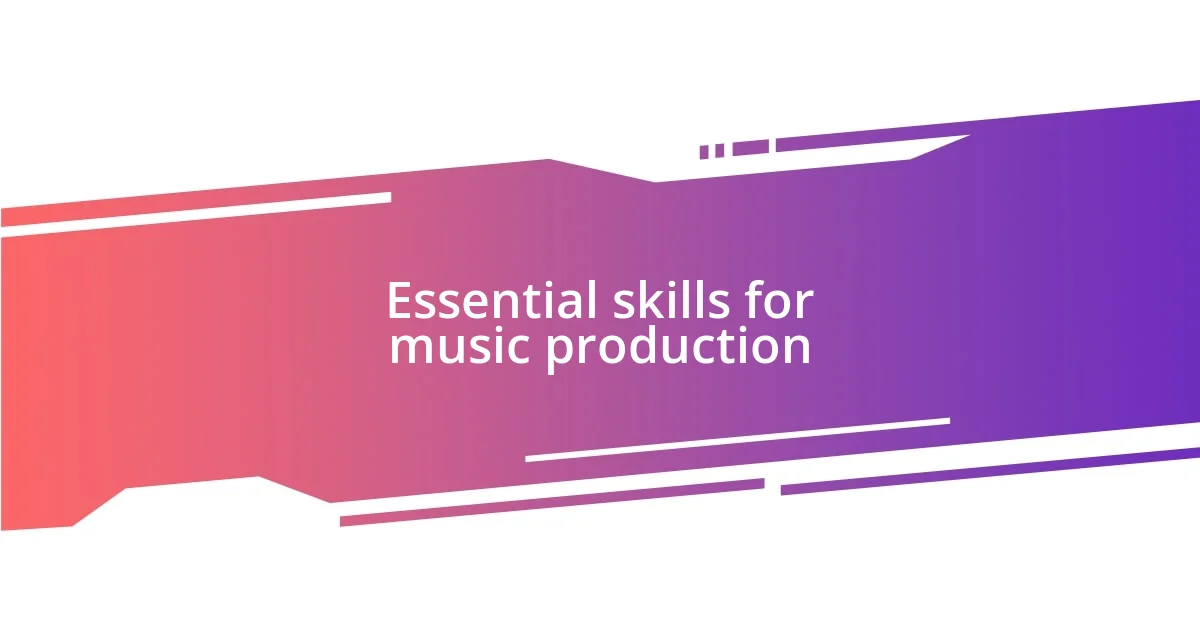
Essential skills for music production
Developing essential skills for music production goes beyond just understanding technology or theory; it’s about cultivating a unique blend of creativity and technical precision. I vividly remember the feeling of exhilaration when I first started learning about sound design. Manipulating sounds and realizing I could create something completely new from scratch was a game-changer for me. It’s that heart-pounding excitement that drives many aspiring producers and reminds me why I love this craft.
Here are some key skills that are crucial in music production:
- Sound Design: Crafting and manipulating sounds to create unique audio textures.
- Mixing: Balancing different audio tracks to create a polished and cohesive final product.
- Arrangement: Structuring music pieces effectively to maintain listener interest.
- Critical Listening: Developing an ear for detail to distinguish between subtle nuances in sound.
- DAW Proficiency: Mastering digital audio workstations like Ableton, Logic, or Pro Tools to enhance workflow.
- Collaboration: Working with other musicians and producers to gain new perspectives and ideas.
- Creativity: Cultivating innovative approaches to creating music and overcoming creative blocks.
I found that each of these skills contributes to my growth as a producer, allowing me to express myself more fully while honing my craft. Embracing both the artistic and technical aspects has been pivotal in my journey; it’s like weaving a tapestry where each thread plays a vital role in the overall picture.
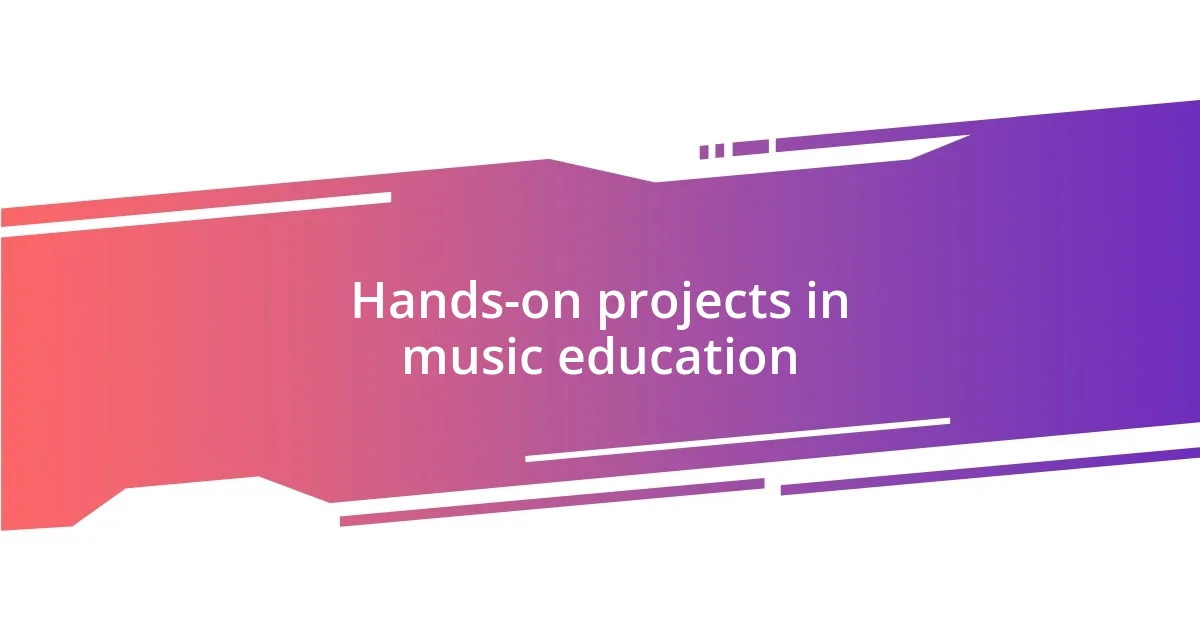
Hands-on projects in music education
Experiencing hands-on projects in music education transformed my understanding of production. I remember the first time I participated in a collaborative project with my peers. We had to produce an entire track from scratch in just three days. The pressure was intense, but it pushed my creativity to new heights. There’s something magical about working alongside others, each bringing unique ideas to the table, leading to an outcome that none of us could have achieved alone.
In another instance, I worked on a project where we explored remixing popular songs. This not only honed my technical skills but also gave me a sense of ownership over the creative process. I could take an existing piece and twist it into something that resonated with my artistic vision. It was like painting over a classic masterpiece; the act of reimagining fueled my passion for music production.
Hands-on projects in music education are vital because they bridge the gap between theory and practice. They encourage experimentation and foster a sense of community. I often reflect on how these projects have shaped my journey, reminding me that learning isn’t just about lectures or textbooks—it’s about diving into the process and discovering your unique sound through real-world experience.
| Type of Project | Benefits |
|---|---|
| Collaborative Track Production | Enhances teamwork and creativity, leads to diverse musical influences. |
| Remix Assignments | Encourages innovation and personal expression through familiar songs. |
| Live Performances | Builds confidence and stage presence, teaches real-time problem-solving. |
| Technology Workshops | Increases technical proficiency with tools essential for music production. |
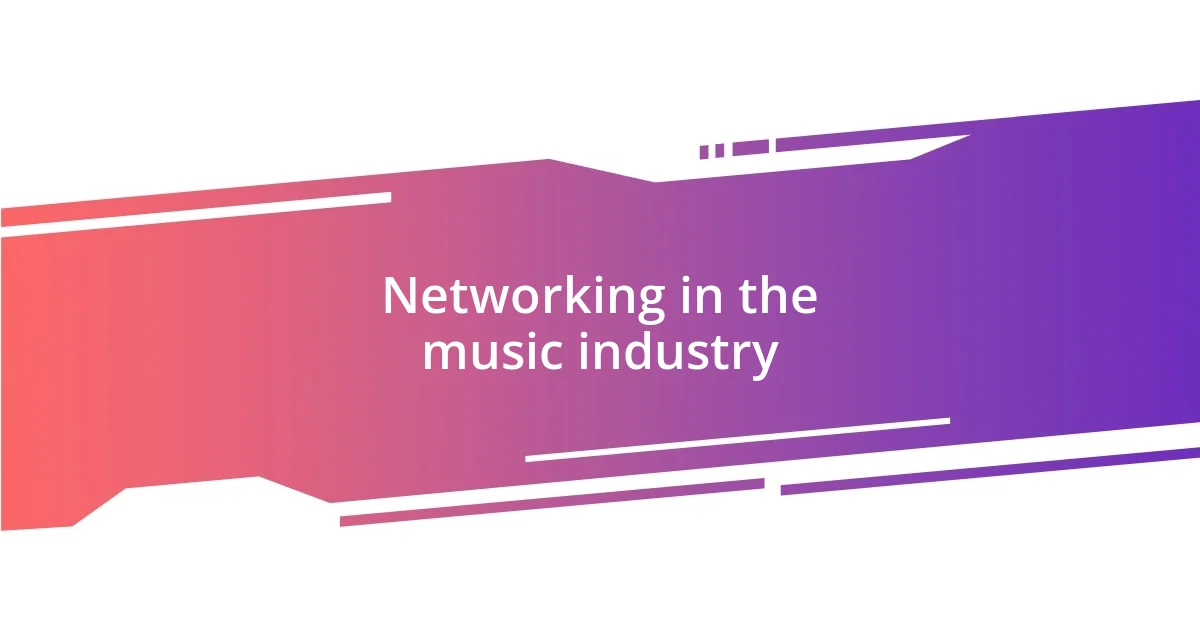
Networking in the music industry
Networking in the music industry is an adventure all its own. I remember my first music event vividly. I felt like a fish out of water, but as soon as I introduced myself to someone, the conversation sparked a chain reaction. Suddenly, I was chatting with a producer who was willing to share insights and tips about the industry—a perfect example of how genuine connections can lead to invaluable opportunities.
Every interaction is a chance to learn and grow, something I realized after attending a workshop. I was surrounded by both seasoned professionals and fellow aspiring producers. Sharing our experiences and exchanging contacts felt like building a bridge of collaboration. Have you ever felt that electric feeling when someone shares their passion? It’s these moments that solidify the idea that networking isn’t just about making contacts; it’s about fostering relationships that can transform your career.
Additionally, utilizing social media has been a game-changer in how I approach networking. Platforms like Instagram and LinkedIn offer incredible avenues to showcase your work and connect with others in the industry. Whenever I post my latest track, I try to engage with followers who comment. It’s amazing how a simple reply can start a dialogue that might lead to future collaborations. Networking isn’t just an exchange; it’s about kindling connections that inspire and elevate our journeys in music production.
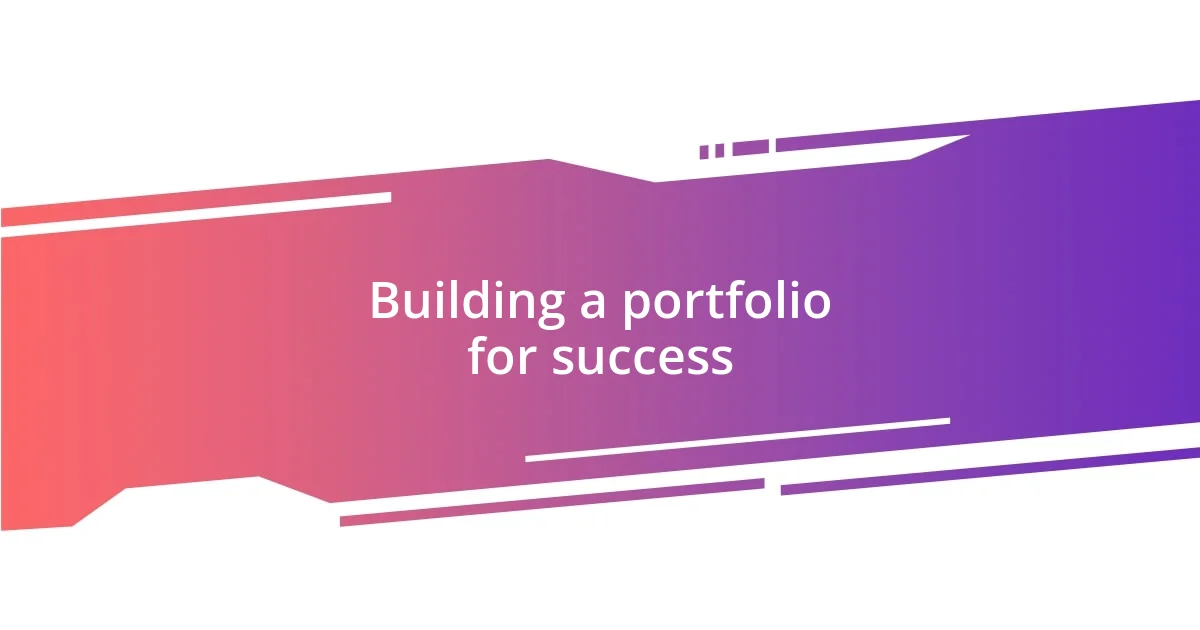
Building a portfolio for success
Building a portfolio is one of the most critical steps in my music production journey. I vividly recall the moment I compiled my first collection of tracks; it felt like assembling a puzzle that revealed my artistic identity. What I learned from that experience is that each piece in your portfolio should not only showcase your technical skills but also reflect who you are as a creator. Have you ever looked back at your work and felt a surge of pride? That’s the beauty of a well-rounded portfolio—it encapsulates your growth and passion.
As I explored different genres, I realized the importance of versatility. Curating tracks across various styles allowed me to demonstrate adaptability and creativity. One project I undertook involved producing a chill-hop beat, which was a departure from my usual electronic flair. The feedback I received from peers was overwhelmingly positive and encouraged me to step out of my comfort zone. I often think about how embracing new styles can expand your audience—don’t you think a diverse portfolio makes you more appealing to collaborators?
Moreover, I found that including personal projects along with collaborative works in my portfolio enriched my narrative. For instance, I once created a track inspired by my travels to a music festival, weaving in sounds I recorded on-site. That track became a conversation starter during networking events, as it highlighted my personal journey in music production. A well-crafted portfolio isn’t just a collection of songs; it tells your story. How would you want your story to be perceived? By thoughtfully selecting your projects, you can create a compelling narrative that resonates with listeners and industry professionals alike.
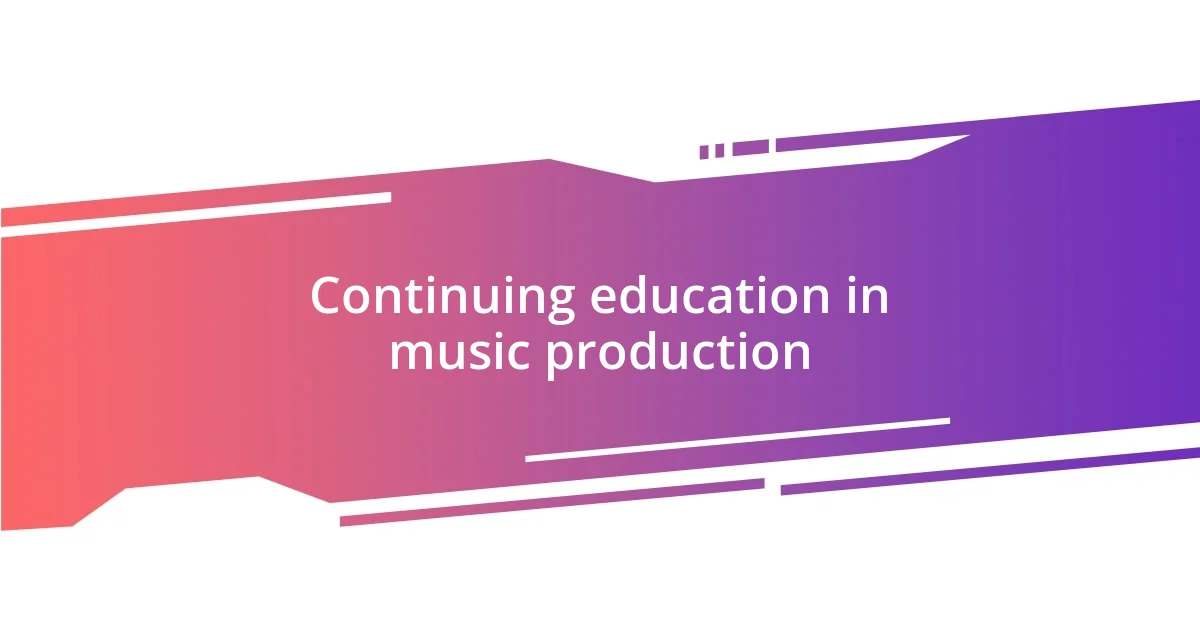
Continuing education in music production
Continuing education in music production has been an essential part of my growth in the field. I remember diving into online courses that offered hands-on experience with software I had only scratched the surface of before. It was invigorating to watch tutorials that transformed my understanding of sound design—suddenly, I felt empowered to manipulate sounds in ways I had never imagined. Have you ever felt that rush of excitement when you finally grasp a technique that had eluded you?
Workshops also play a significant role in my ongoing education. I once attended a local seminar where a renowned producer dissected his creative process. Listening to him share his struggles and breakthroughs made me realize that learning doesn’t stop at technical skills; it encompasses the journey and mindset of being a creator. Do you think that understanding the emotional side of production can enhance your work? Indeed, it deepens it—allowing for genuine expression that resonates with audiences on a personal level.
Moreover, joining online communities has been a game changer for my education. Sharing projects and receiving constructive feedback has opened my eyes to perspectives I hadn’t considered before. I recall a time when I posted a rough mix of a song I was working on and, to my surprise, received advice that significantly improved my mix. The sense of camaraderie and collective growth within these groups is invaluable. How often do you seek out feedback from others, and what could it teach you? Embracing feedback not only hones my skills but also reinforces the idea that education is a collaborative effort in this dynamic field.
